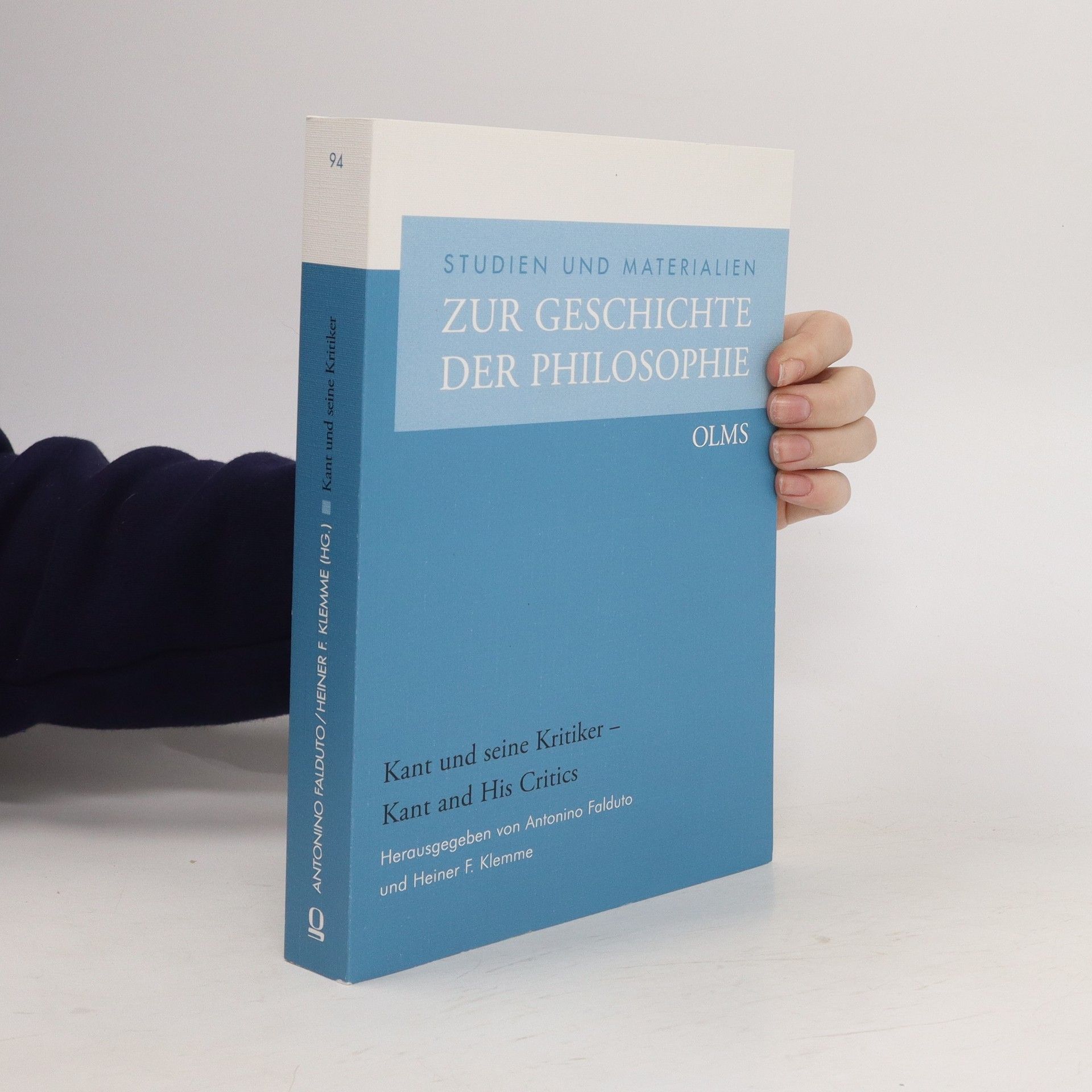Kant und seine Kritiker
- 423 stránek
- 15 hodin čtení
There are still significant gaps in the study of the historical and systematic contexts of Kant’s philosophy. This is true even more of our understanding of the significance of the objections and criticisms levelled at Kant’s philosophy and of the development of his philosophy and its reception and depiction in later centuries. The essays in this volume seek to close these gaps. They are based on the papers given at the 7th multilateral Kant Colloquium with the theme “Kant und seine Kritiker – Kant and his critics – Kant et ses critiques” which took place from 28th-30th April 2017 at the Martin-Luther-University, Halle-Wittenberg.
